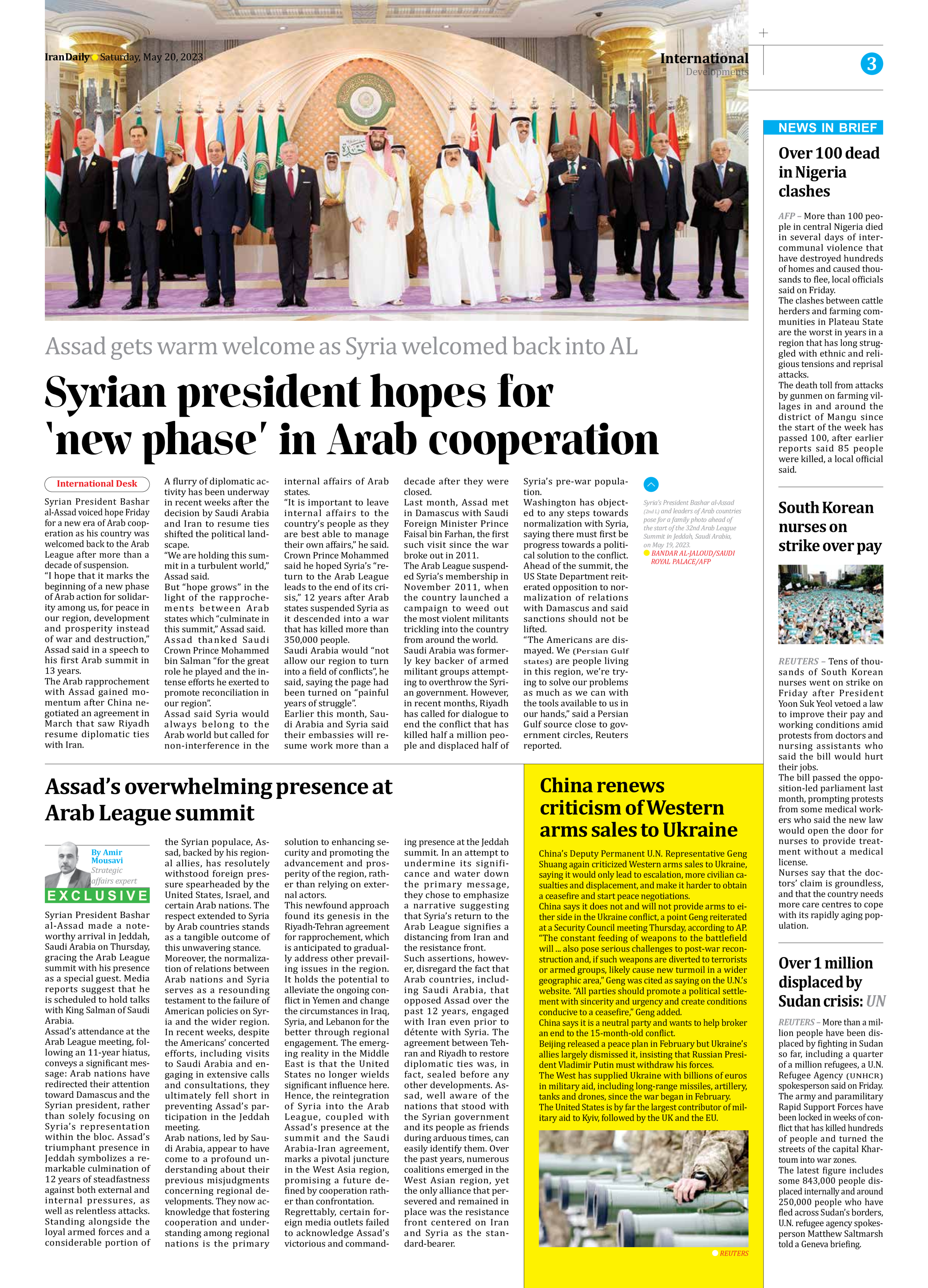
Assad’s overwhelming presence at Arab League summit
By Amir Mousavi
Strategic affairs expert
Syrian President Bashar al-Assad made a noteworthy arrival in Jeddah, Saudi Arabia on Thursday, gracing the Arab League summit with his presence as a special guest. Media reports suggest that he is scheduled to hold talks with King Salman of Saudi Arabia.
Assad’s attendance at the Arab League meeting, following an 11-year hiatus, conveys a significant message: Arab nations have redirected their attention toward Damascus and the Syrian president, rather than solely focusing on Syria’s representation within the bloc. Assad’s triumphant presence in Jeddah symbolizes a remarkable culmination of 12 years of steadfastness against both external and internal pressures, as well as relentless attacks. Standing alongside the loyal armed forces and a considerable portion of the Syrian populace, Assad, backed by his regional allies, has resolutely withstood foreign pressure spearheaded by the United States, Israel, and certain Arab nations. The respect extended to Syria by Arab countries stands as a tangible outcome of this unwavering stance.
Moreover, the normalization of relations between Arab nations and Syria serves as a resounding testament to the failure of American policies on Syria and the wider region. In recent weeks, despite the Americans’ concerted efforts, including visits to Saudi Arabia and engaging in extensive calls and consultations, they ultimately fell short in preventing Assad’s participation in the Jeddah meeting.
Arab nations, led by Saudi Arabia, appear to have come to a profound understanding about their previous misjudgments concerning regional developments. They now acknowledge that fostering cooperation and understanding among regional nations is the primary solution to enhancing security and promoting the advancement and prosperity of the region, rather than relying on external actors.
This newfound approach found its genesis in the Riyadh-Tehran agreement for rapprochement, which is anticipated to gradually address other prevailing issues in the region. It holds the potential to alleviate the ongoing conflict in Yemen and change the circumstances in Iraq, Syria, and Lebanon for the better through regional engagement. The emerging reality in the Middle East is that the United States no longer wields significant influence here.
Hence, the reintegration of Syria into the Arab League, coupled with Assad’s presence at the summit and the Saudi Arabia-Iran agreement, marks a pivotal juncture in the West Asia region, promising a future defined by cooperation rather than confrontation.
Regrettably, certain foreign media outlets failed to acknowledge Assad’s victorious and commanding presence at the Jeddah summit. In an attempt to undermine its significance and water down the primary message, they chose to emphasize a narrative suggesting that Syria’s return to the Arab League signifies a distancing from Iran and the resistance front.
Such assertions, however, disregard the fact that Arab countries, including Saudi Arabia, that opposed Assad over the past 12 years, engaged with Iran even prior to détente with Syria. The agreement between Tehran and Riyadh to restore diplomatic ties was, in fact, sealed before any other developments. Assad, well aware of the nations that stood with the Syrian government and its people as friends during arduous times, can easily identify them. Over the past years, numerous coalitions emerged in the West Asian region, yet the only alliance that persevered and remained in place was the resistance front centered on Iran and Syria as the standard-bearer.







